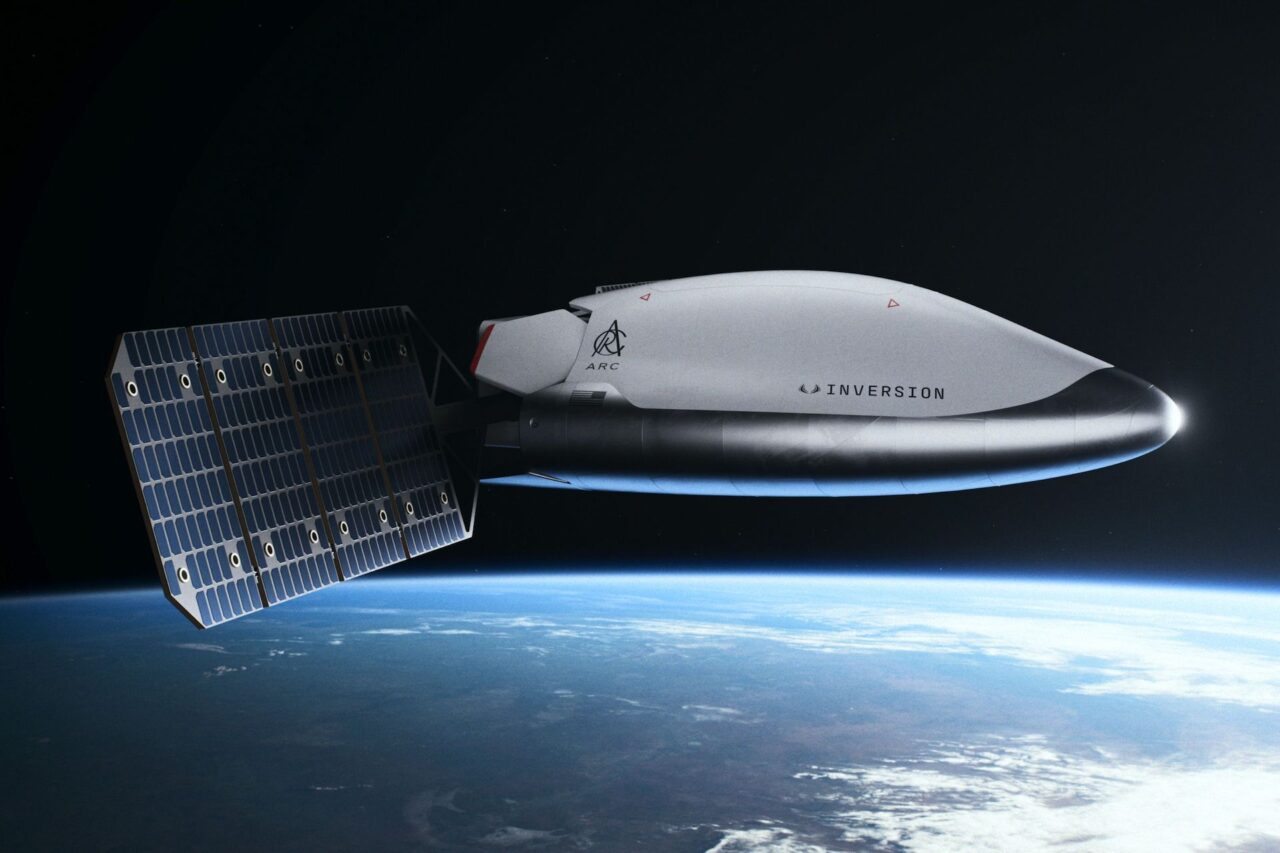Inversion Space, a burgeoning startup founded in 2021, is developing a revolutionary delivery system designed to transport cargo from low Earth orbit to anywhere on Earth within an hour. The company recently unveiled its flagship vehicle, the Arc, a hybrid spaceplane and cargo capsule capable of carrying up to 500 pounds (approximately 225 kilograms) of supplies. Inversion aims to launch the Arc by the end of 2026, leveraging insights gained from its recent demonstration mission.
The Arc represents a significant leap in logistics. Not only does it aim to provide access to space, but it is also designed for rapid delivery of essential goods. The autonomous vehicle will ascend to low Earth orbit where it can store cargo for up to five years. When required, the Arc will reenter Earth’s atmosphere, deploying parachutes for a safe landing. Equipped with a deorbit engine and an autonomously maneuverable parachute, the spacecraft is built to withstand hypersonic speeds and can rendezvous with other spacecraft in orbit.
Inversion Space envisions a future where a constellation of its reusable vehicles will be operational in orbit, allowing for flexible returns based on client needs. The startup is particularly targeting military contracts, highlighting its potential benefits for the U.S. military. The company stated, “Arc reshapes defense readiness by enabling access to anywhere on Earth in under an hour – allowing for the rapid delivery of mission-critical cargo and effects to austere, infrastructure-limited, or denied environments.” This capability positions space as a new frontier for global logistics, promising unparalleled speed and resilience for national security.
Inversion tested its initial vehicle, named Ray, during January 2023 as part of SpaceX’s Transporter-12 rideshare mission. Ray served as a demonstration of the company’s technologies, focusing on its in-orbit systems and reentry capabilities. While the mission was largely successful, Ray encountered a propulsion issue that prevented its reentry. In a statement, the company noted, “Our first spacecraft, Ray, has completed its mission on-orbit – serving as an extremely successful testbed for validating key technologies despite not attempting re-entry due to an on-orbit short circuit in a component preventing our deorbit engine from igniting.”
Despite being a newcomer in the space industry, Inversion Space aims to produce hundreds of its vehicles annually, with plans to establish a comprehensive constellation of cargo reentry spacecraft by 2028. The company prides itself on its innovative approach, with nearly all systems on board Ray developed in-house by a dedicated team of just 25 people.
As Inversion Space moves forward with its ambitious plans, the potential implications for logistics and military operations are significant. With the promise of rapid cargo delivery from orbit, Inversion is poised to redefine how goods are transported on a global scale, marking a new chapter in the intersection of space and logistics.







































































